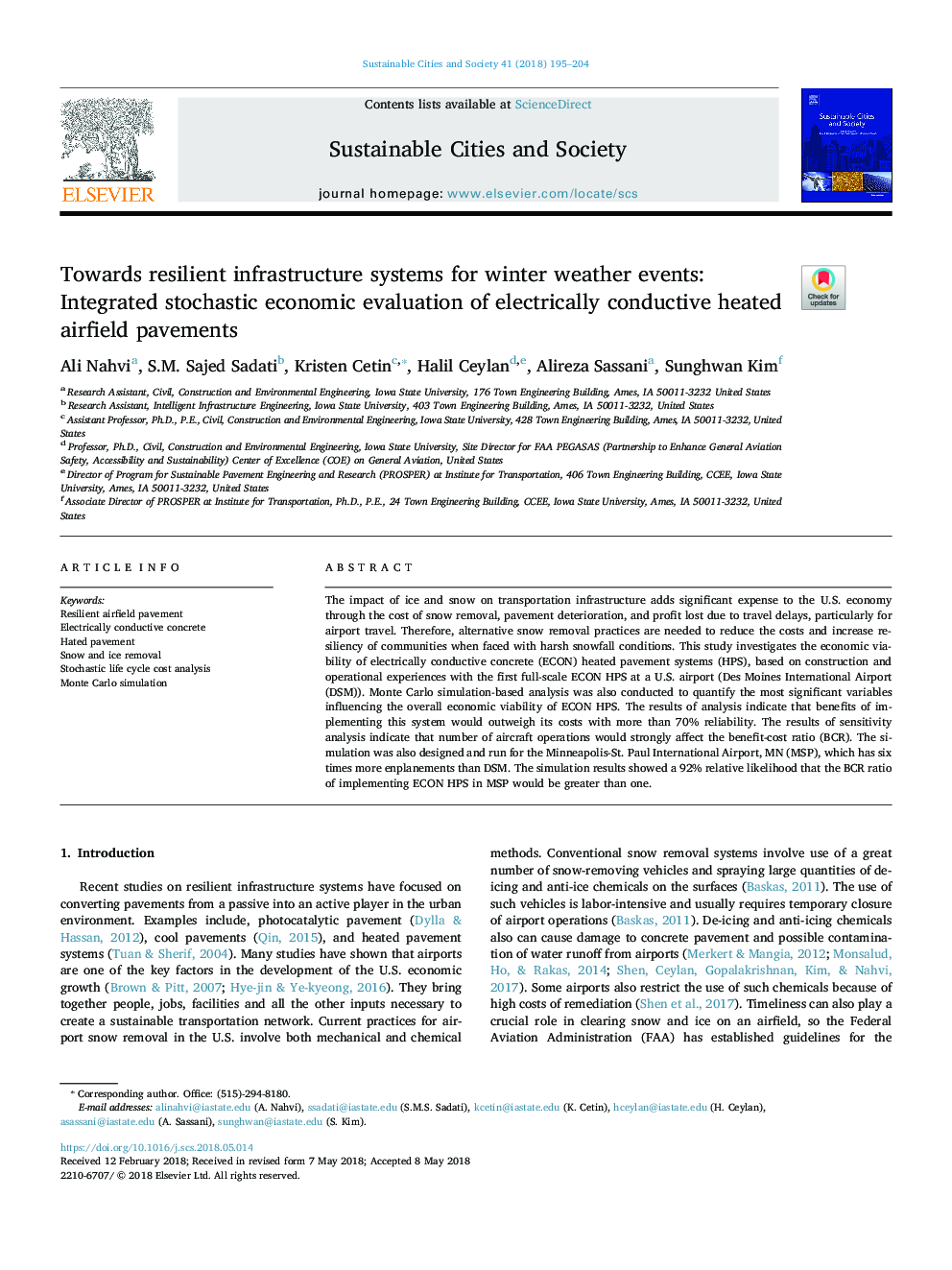| Article ID | Journal | Published Year | Pages | File Type |
|---|---|---|---|---|
| 6774943 | Sustainable Cities and Society | 2018 | 10 Pages |
Abstract
The impact of ice and snow on transportation infrastructure adds significant expense to the U.S. economy through the cost of snow removal, pavement deterioration, and profit lost due to travel delays, particularly for airport travel. Therefore, alternative snow removal practices are needed to reduce the costs and increase resiliency of communities when faced with harsh snowfall conditions. This study investigates the economic viability of electrically conductive concrete (ECON) heated pavement systems (HPS), based on construction and operational experiences with the first full-scale ECON HPS at a U.S. airport (Des Moines International Airport (DSM)). Monte Carlo simulation-based analysis was also conducted to quantify the most significant variables influencing the overall economic viability of ECON HPS. The results of analysis indicate that benefits of implementing this system would outweigh its costs with more than 70% reliability. The results of sensitivity analysis indicate that number of aircraft operations would strongly affect the benefit-cost ratio (BCR). The simulation was also designed and run for the Minneapolis-St. Paul International Airport, MN (MSP), which has six times more enplanements than DSM. The simulation results showed a 92% relative likelihood that the BCR ratio of implementing ECON HPS in MSP would be greater than one.
Related Topics
Physical Sciences and Engineering
Energy
Renewable Energy, Sustainability and the Environment
Authors
Ali Nahvi, S.M. Sajed Sadati, Kristen Cetin, Halil Ceylan, Alireza Sassani, Sunghwan Kim,
